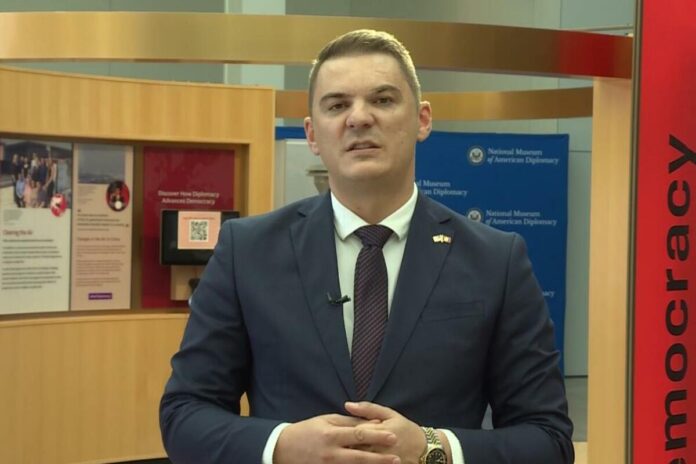“Enhancing State Financial Stability and Combating the Shadow Economy Through Fuel Marking”
The initiative to implement a marking process for liquid fuels derived from petroleum is not intended to impose any hardship on citizens but instead aims to enhance the state’s financial stability and combat the shadow economy, as stated by the relevant minister, Admir Šahmanović.
“This measure has a clear objective: to mitigate illegal trade in petroleum products, improve oversight of fuel transactions, and ensure more effective budget revenue collection through enhanced excise duty collection,” explained Šahmanović, the Minister of Mining, Oil, and Gas.
The proposed amendments to the Energy Law include a marking procedure for liquid fuels sourced from petroleum, utilizing a substance based on nanotechnology.
“The marking process aids in consumer protection by guaranteeing that only derivatives of confirmed origin and quality are available in the market. This substance does not alter the fuel quality, but enables accurate identification of its origin during inspections,” noted Šahmanović.
He also highlighted that there have been media claims and pressures regarding this initiative, with attempts to unprofessionally present broad data to the public, lacking any substantial foundation and based on erroneous information and unverified estimates, which have been, as he claimed, heavily influenced by personal biases of certain journalists.
“It is troubling that, despite our cooperative relationship with the media and a high degree of transparency, the Ministry has not received a single inquiry concerning this matter, which I believe is essential for accurately and promptly informing the public,” stated Šahmanović.
He pointed out that misinformation circulating about the costs associated with fuel marking is an example of the erroneous public information, which lacks genuine support.
“Claims suggesting annual costs between seven to ten million euros, or two to 2.5 cents per liter, are incorrect. For comparison, the marking service cost in Serbia is approximately a third of a cent per liter, and there is no reason to anticipate significantly higher expenses in Montenegro, even with some technical challenges, especially related to road transport fuel supply,” Šahmanović mentioned.
He emphasized that the costs for marking will not fall on citizens but will be covered by oil companies, while the Government will determine the maximum service price based solely on a comprehensive cost analysis, maintaining full transparency.
“I would like to remind everyone that this initiative is explicitly outlined in Montenegro’s Fiscal Strategy for the period from last year to 2027, as a key measure for enhancing tax discipline. The anticipated annual impact is 14 million euros, with a conservative medium-term projection of five million euros in revenue per year,” clarified Šahmanović.
According to him, fuel labeling is not a novel concept; it is a tested practice utilized by many countries, including regional ones.
“Instances from Serbia, where this system was launched in 2014, demonstrate tangible results, with a 13.2 percent increase in excise revenue in 2014 compared to the previous year, followed by a 4.8 percent rise in 2015, and a 13 percent increase in 2016,” added Šahmanović.
He mentioned that this measure had been subject to public discussion during the formulation of previous Energy Law amendments proposed for 2022, when provisions for fuel labeling were introduced for the first time.
The Ministry of Mining, in collaboration with the Ministry of Finance, is executing this process meticulously, professionally, and in line with best international practices, considering all relevant parties.
“In conclusion, I want to reiterate that this Government and the department I lead will remain steadfast in implementing measures that establish order, reinforce the system, and diminish opportunities for the shadow economy. Our priority is the fight for a legal, regulated, and responsible market, despite some coordinated efforts to mislead the public,” concluded Šahmanović.
News


